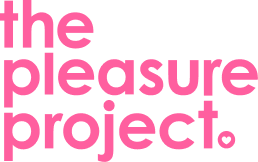It’s World AIDS day, time to reflect on the impact of this epidemic, but also how we are tackling it together as sexual health advocates. One of the great phrases in recent discussion of HIV prevention is the one coined by Richard Horton of The Lancet in the foreword to their special journal on men having sex with men and HIV. It was a phrase that continues to ring in my ears way after I heard it at the Washington AIDS conference, way back in July.
The conference was exciting for the enthusiasm about how new technologies can further reduce HIV incidence; male circumcision and ARVs have shown in research settings to reduce HIV incidence by up to 66% and 96% respectively. The Conference corridors were awash with discussion of these breakthroughs and how this will bring to us to an ‘AIDS free generation’. However we remain skeptical over here at The Pleasure Project towers, as we counted condoms mentioned only four times in the opening ceremony. Why are we encouraged to focus our energies on the new technologies without consideration of how to improve our efforts to promote the perfectly good ones that already exist?
In the increasingly bio-medicalised world of HIV prevention there seems to be less and less discussions of the messy business of sex, pleasure and human beings as sexual beings. Some studies show that circumcised men go on to believe themselves immune to infection. So why then is there little discussion on the stages of HIV prevention on how to better communicate risk reduction and incidence reduction rather than risk elimination?
And talking of risk elimination where are the condoms, the safest penetrative sex, these days in dialogues of HIV prevention? Where are the sophisticated research projects that help us promote encourage mutual masturbation, phone sex, thigh sex: to have satisfying sex that is safe and feels good. We are not denying that penetration feels darn good (if done right) but at AIDS 2012 or in current discussions of HIV prevention you would think its the only way. There are ‘many ways to skin a cat’ and sadly the HIV prevention world colludes to restrict our ideas of sex that can be satisfying.
A recent article in the The Huffington Post also points the figure at the family planning world, and says that it’s even worse. In the family planning world pleasure is not even a whisper round the corner in the next town. In fact the recent Family Planning Summit in London made no reference or mention of how people may also have sex for pleasure , and contraception suppliers might want to factor that into discussions of how people want to plan their families. After all wasn’t the invention of the pill a huge collective sigh of relief for women to be able to start having worry free sex. Until AIDS came along.
Looking through the coverage of World AIDS days another sad omission that strikes us is the lack of any mention of love or romance, a fairly universal driver of risky behaviour but also a critical dimension of satisfying sexual lives. at the AIDS conference I saw only one abstract highlighted how people take more health risks for love – and our evidence review “Everything you have ever wanted to know about Pleasure and Safer Sex, but were afraid to ask” turned up little in the way of studies of romance or falling in love.
Condoms and interesting and diverse ways to promote safer sex are getting lost in the usual scientific charge to find the next techno-fix or magic bullet. Funding incentives are on finding new drugs or products that will stem new infections; but really as we know it’s not that simple. Human beings will use technologies in a myriad of ways. The sooner we start to see the pleasurable potential in prevention – as we are with microbicides as lube or female condoms as they rub us in that oh so special way – will we start to build on the reasons why we have sex not try and avoid the natural advantage we have for health promotion in sexual and reproductive health.
Its not all doom and gloom and we are pretty cheery activists, as they go. There have been some great articles recently about safer sex and pleasure and the link to empowerment.


Thanks for ones marvelous posting! I really enjoyed reading it, you are a great author.I will be sure to bookmark your blog and will eventually come back very soon. I want to encourage one to continue your great posts, have a nice morning!
Take a look at my weblog web page, Claribel – http://didacticacne8332.page.tl ,
I think your website is the best I’ve seen. I’ll thank you a lot for posting this interesting stuff.
One thing they did say about her though was that she loved olive oil, which is why she lived so long. Impressive when you sit down and think of it.